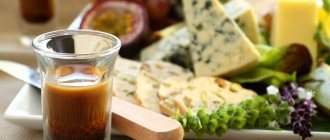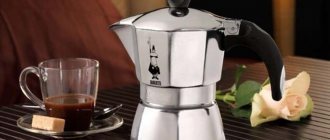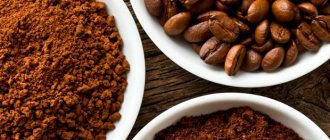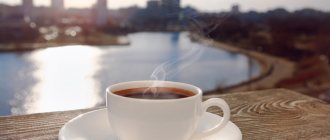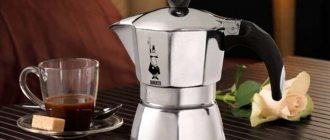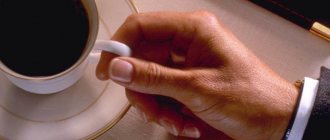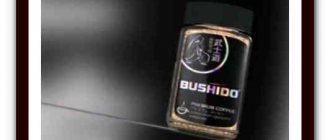Henna and coffee for hair.
Surely, every lady dreams of having beautiful, well-groomed hair. But going to a beauty salon is not always possible, and besides, coloring with chemical dyes, as annoying as it may sound, does not make your hair healthier. To improve hair health, you have to make restorative masks and compresses. But there is a product that will immediately have a caring effect on the strands, and at the same time give a gorgeous color and a gaping tint.
How can it be? Use the natural recipe for henna with coffee for hair, and you will be satisfied with the result. The recipe described contains only natural ingredients: henna and coffee. No chemicals, therefore, no damage to the hair.
Beauty, healing and care at once
Henna is a natural hair dye and body painting, it is made from the leaves of the non-thorny lawsonia plant. The leaves are collected, dried, then ground and made into paint. At the same time, body paint is made from the powder of the dried upper leaves, and hair dye is made from the lower leaves. Various natural additives were added to the powder, resulting in different colors of the dye: from copper to dark.
It was used to cure various skin diseases and was also used for classic body painting - mehndi. In addition, henna paste was used to treat and dye hair.
Shades and proportions
It is immediately worth noting that information on the number of drugs is advisory in nature . You may need to adjust the proportions in one direction or another. Much depends on the structure, condition, shade of the hair. You can only understand how well the combined color matches your expectations through experience. With each new coloring, the tone will appear stronger and become more saturated.
If you mix henna and basma in equal quantities, you will get a chestnut color of varying intensity (lighter on blondes, with a copper tint on brown-haired women). You need to keep the mixture on your head for 1–2 hours. For other combinations, use the following ratios:
- Light brown is the result of mixing 3 parts of henna and one part of basma. The color will appear within half an hour. The initial hair color should be light.
- Ginger . A soft variety of bright colors is obtained by combining henna and basma in a 2:1 ratio. The recipe is suitable for blondes and requires keeping the paste for no longer than 10–15 minutes.
- Bronze . The ratio of paints is the same, 2 to 1, but you need to apply the mixture to dark curls and do not wash it off for 30 minutes. It is possible to change the proportions: 1.5 parts of henna plus basma in the same amount (1 part).
- Chocolate, brown . This color is given by a combination of 1 share of lavsonia powder and 2 shares of indigofera product. The composition is left on the hair for 15–50 minutes.
- A black color will be obtained by using the same proportion, 1:2, and increasing the exposure time to 1.5–2 hours.
The products can be used not only in the form of a homogeneous mixture, but also one at a time. In this case, the duration of dyeing depends on what color you want to get in the end:
- if light brown, then first apply henna for 60 minutes, then basma for 20 minutes;
- if you want rich chocolate, leave the time for the first component the same, for the second, increase it to 40–50 minutes;
- to get black, take 40 minutes for henna, 2 hours for basma.
Please note that the amount of powder you will need for coloring depends on the length, thickness of your hair, and also on what ratio you prefer. For short and medium strands, you may need from 100 to 300 grams of dry matter, for long strands - 300–500 grams.
Which henna is better to buy?
Now you can buy not only henna powder, but also compressed briquettes, and in both forms, henna perfectly retains its properties. To use in recipes, henna in tiles will need to be grated to a dusty state.
Typically, henna is available in 4 colors:
If you are not planning categorical changes, then it is better to choose brown and chestnut for hair colors. But if you are not afraid of tests, you can choose reddish.
The final color will depend on the chosen color scheme, on the proportions, and also on the exposure time.
Painting techniques
There are two ways to color hair with henna and basma: separate and simultaneous. According to reviews, both give approximately the same results. However, in the case of sequential application of dyes, you can control what color is obtained and correct it directly during the procedure.
For both methods you will need to prepare:
- 2 containers for mixing solutions;
- the same number of brushes or sponges (depending on the chosen method);
- 2 spoons or sticks to stir the mixture;
- comb-comb;
- hairdresser's clips or crab clips;
- Vaseline or fatty cream;
- a plastic bag, shower cap or cling film;
- a towel that you don’t mind getting dirty;
- gloves;
- waterproof peignoir/old robe or T-shirt.
How to dye your hair with henna and basma using the simultaneous method:
- Dilute the powders in different containers, then mix.
- Bring the mixture to a temperature of 40°C and leave it in a bowl with hot water to keep it warm.
- Lubricate the hairline with a thick cream (vaseline).
- Wear gloves, a robe, or a T-shirt.
- Divide your hair into 4 zones: occipital, crown and two temporal. Secure each one with hairpins.
- Start coloring from the back of the head. Divide this part of the curls into separate strands.
- Consistently apply a little warm composition to each. Move from the root zone to the tips.
- Next, treat the temporal zones and crown in a similar way.
- Gather your hair in a bun, put on a swimming cap (bag) or wrap your head with film.
- Then wrap your hair in a towel.
- After waiting the required time, rinse off the mixture with plenty of warm water.
Advice. If powder residues are difficult to remove, apply a little conditioner to colored hair, because shampoo cannot be used.
Separate painting is carried out almost the same way:
- Prepare the henna first - it is always applied first.
- Protect your clothes with a robe, your hands with gloves, and the skin on your forehead, temples, and the back of your head with cream or Vaseline.
- Form 4 zones of hair and pin them with clips.
- Treat the curls in the same way as when dyeing using the simultaneous method.
- When the required time has passed, rinse off the composition with water. You can use balm.
- Then dilute the basma and distribute it over the strands.
- Don't cover your head.
- After the required time, wash off the dye.
The separate method is more often used to obtain black color.
Little life hack
The coffee henna recipe is great for healing black hair. Coloring bleached hair can give a sudden result, because the dye will be more active.
It is better to take roasted coffee beans, while Arabica is better. You can grind it yourself, or you can buy it already ground. In addition to the main ingredients, the recipes use various vegetable oils, dark tea, and onion peels.
Method No. 1. Regular hair mask
Depending on the length and thickness of your hairstyle, one or two servings of coffee and 1-2 packages of henna will be useful for you. In other words, for small or medium-length hair, take one serving of espresso and one package of henna; for longer and thicker hair, double the proportions.
In a coffee pot or coffee machine, prepare a strong espresso without adding anything other than coffee and water. Add henna directly to the roast and stir. Wait for the mixture to cool slightly. Then you need to color your hair with a warm consistency, paying special attention to the root zone. The mixture must be left for approximately 5 hours. You can make such a mask at night; to protect your laundry from staining, cover your head with film and wrap it in a towel. After time, rinse off the mixture and dry naturally.
This hair mask will have a restorative effect, giving it a wonderful coffee color and a healthy glow. The mask can be done 1-2 times a month.
Method No. 2. Restoring mask for damaged hair
Take ground coffee, henna powder, natural honey and sunflower oil in a ratio of 1:1:1:1. Mix all ingredients and apply to hair for up to an hour, then wash and dry without using a hair dryer. This coloring will strengthen your hair, give it shine and a coffee color.
The proportions of hair masks can vary depending on their condition, length and thickness. By changing the amount of ingredients in recipes, you can choose your own, personal coloring recipe. In any case, when using such natural ingredients you will not harm yourself.
Coffee and henna for hair coloring.
One of the secrets of female beauty is the health of the hair, the condition of which depends on a huge number of reasons. Including the methods of coloring, the composition of coloring agents, the chemical elements of which have a bad effect on the hairstyle. In this case, natural remedies come to the rescue - coffee and henna, which can be successfully used at home.
Staining procedure
This recipe involves the use of natural coffee in combination with tea. Products can be colored chocolate or chestnut color. You don’t have to visit a salon, because all the work can be done at home.
- You will need onion peels (0.5 cups), which are filled with hot water. The product must be completely covered with water.
- The composition must be boiled and allowed to cool for 30 minutes.
- Then you need to bring it to a boil again, then mix the composition with black tea (1 tsp), and leave to infuse for half an hour.
- It is necessary to strain the broth and heat to a boil. After this, you can add coffee (1 tbsp.).
- The composition must infuse, and then henna is added to it. Before painting is carried out, it is necessary to heat the solution using a water bath. Only after this can you use the composition to renew your hair color. The composition must be applied evenly over all curls, and then wrap the head in polyethylene and a towel.
- The duration of the procedure should be about 40 minutes. If you want to get dark hair color, it will take longer. The recipe effectively helps improve the appearance of curls. With its help, you can perform procedures at night, and in the morning you need to wash it off without shampoo. You should not wash your hair for 3 days so that the shade becomes stable.
Peculiarities
Both of these natural remedies are gifts from warm countries, where people have long discovered their miraculous characteristics. For centuries, ladies have used henna not only to color hair, fur, nails or decorate the body for aesthetic and religious purposes, but also to heal skin diseases, bone diseases and treat wounds.
His Majesty coffee is great at combating baldness because it reduces the production of dihydrotestosterone, which causes the destruction of the hair follicle. Its main components (antioxidants) protect hair from external negative influences, and the mineral complex moisturizes and saturates it with nutritional substances.
Any of these herbal products do their job perfectly individually, but together they can achieve truly unsurpassed results: giving your curls an enchanting shine, strengthening your hair follicles, getting rid of dandruff and getting natural chocolate colors. The main thing is to arm yourself with desire, time and the tools necessary for the coloring procedure.
Benefits and harms
The combination of henna and coffee has a number of positive qualities that allow you to:
- Magic henna: DIY natural hair dye
- dye your hair at home;
- carry out the procedure an unlimited number of times;
- vary the intensity of shades;
- strengthen and accelerate hair growth;
- get rid of dandruff;
- saturate the scalp with nutrients;
- give the strands a charming shine.
Disadvantages:
- if the ratio of substances is incorrect, you can make a mistake with the color;
- long duration and complexity of the procedure;
- difficult to repeat the desired color.
Application
To start the painting process, you need to stock up on all the necessary equipment: plastic or rubber gloves, a wood or plastic comb, an ordinary sponge or a wide brush, a bowl with a deep bottom. Those with long curls will find hair clips useful.
The coloring mixture is prepared according to a basic recipe, which can be supplemented or changed (depending on the desired color).
To do this, you need to combine a twenty-five-gram bag of henna with 50-100 g of coffee and pour just-boiled water over them, then carefully stir until it becomes a homogeneous paste. To prevent it from cooling down, the container must be placed in a water bath. The brightness of the color depends on the temperature of the purchased paint.
Then apply the resulting mixture sparingly to clean, dry strands and wrap your head in film, putting something warm on top. After some time (from half an hour to 6 hours), it will be necessary to wash off the dye with warm water without shampoo.
Hair coloring with henna and coffee.
Dyeing hair with coffee and henna is a recipe that came to us from the vastness of the East. Dyeing with henna and coffee not only gives your hair beautiful and rich black colors, but also makes it thicker and more vibrant due to the natural composition of the dyes.
The introduction of henna, basma and coffee does not limit you in the time frame of coloring, because natural “dyes” do not harm the hair, but, on the contrary, nourish it and help strengthen it. Therefore, you can dye your hair with henna and coffee almost once a week.
Features of henna dyeing with coffee for hair
Henna and basma are sold in almost all specialized cosmetic stores in the form of powder or compressed tiles. The choice of its type depends only on your preferences and convenience.
For coloring, you need natural ground coffee, because in the coloring process you will need to use not only brewed water, but also coffee cake.
Since henna is a vegetable dye, you should not be allergic to it, but before you start dyeing, do a test: wipe the inside of your elbow with a brewed mixture of henna and coffee (in a ratio of 1:2). If after 24 hours no rash or itching appears, you can safely use henna with coffee to color your hair.
How to dye your hair with henna and coffee:
1. Add coffee brewed in a 2:1 ratio (50 g of ready-made henna powder 25 g of coffee) to the finished powder or crushed pressed henna in an amount of water that will create the consistency of thick sour cream for the paint (approximately 200-250 ml ).
Henna is an herb, so it needs to be brewed with very hot water. If the dye is cool, the color from the henna will not transfer to the hair.
If necessary, place the paint in a water bath and bring it to a boil.
- The finished dye from henna and coffee is applied to clean, dry scalp. Since both dyes (henna and coffee) are natural, this composition can be used as a mask and kept on your head from 1 hour to 6-8 hours, depending on the desired color.
- You can wash off henna from coffee under warm running water without shampoo, painstakingly combing out grains of henna from your hair.
Natural hair dyeing with henna and coffee is a good method to maintain its health and immediately make it beautiful, but it is recommended to keep in mind that such dyes are not comparable to ammonia dyes in durability.
Hair dyed with basma or henna quickly loses its color, but such dye can be used very often; it will act both as a dye and as a mask. In addition, after constant dyeing with natural ingredients, the hair will be “saturated” with the coloring pigment and such dye will last even longer.
Non-hazardous hair coloring with coffee or henna.
The beauty of hair in almost everything depends on its coloring. But at times the hairstyle needs a break from the constant “repainting” and “chemicals”. In this case, time-tested paints made from henna and coffee come to the rescue.
The content of the article:
Henna combined with coffee has a wonderful effect on your hair: your hair gets a gorgeous chestnut color, glows with health, becomes stronger and thicker. And after dyeing it with this “paint”, the hair emits an amazing smell.
According to reviews, to create a coloring consistency, it is better not to use loose henna in bags. The best option is henna pressed into tiles (it comes in 4 colors: reddish, dark, chestnut and brown). For this coloring consistency, use brown or chestnut henna. In addition to the dye, each tile contains medicinal oils, for example, cocoa butter and clove bud oil. As for coffee, it is advisable to choose roasted and finely ground Arabica beans.
The recipe for natural hair dye is as follows:
- henna tile
- 50–100 g coffee
- little water
Grate the required amount of pressed henna on a small grater, add coffee and pour just-boiled water over this mixture, then stir well. As a result, the mixture should turn out to be a little thinner than sour cream. If the prepared mixture turns out to be thick, it is diluted with hot water. Then the container with paint is placed in a water bath and heated. The color saturation depends on the temperature of the coloring consistency; in other words, the higher the temperature of the mass, the more saturated the color, and vice versa.
The dye mixture is applied to clean, dry strands, sparingly distributing the mixture along their entire length and onto the root system. Next, the head is covered with cling film and insulated with a terry towel. To get a beautiful brown color, keep the paint on for at least 6 hours. If you want to dye your hair a reddish color, wash off the mask after 2-3 hours.
And for dyeing gray hair, a cosmetic mixture is prepared from:
- 1 part henna
- 1 part ground coffee
- 1 part basma
- a small amount of water
The mixture is poured with boiling water and thoroughly mixed (the coloring mixture should resemble thick sour cream). The “paint” is applied to a clean hairstyle, and a rubber and woolen cap is put on top. After 2–2.5 hours, wash your hair with warm water. To consolidate the effect, it is contraindicated to wash your hair with shampoo for the first 3 days after coloring.
Unlike store-bought dyes, which contain chemicals that are harmful to hair, coffee is a natural product. It will help saturate the strands with nutrients and color them reddish and brown. In addition, coffee is great for covering gray hair.
To make the coloring consistency, take the following components:
- 5–6 tbsp. ground coffee
- 1.5 glasses of water
Pour hot water over the coffee and place the container with the coloring mixture on low heat for 13–15 minutes. Afterwards the paint is cooled to a comfortable temperature. The hair is washed with shampoo, applied to the conditioner, then the hair is dipped into a basin with a coffee substance and the dye is poured over it generously (do this 13–15 times). The head is covered with a plastic bag and insulated with a terry towel. After 27–30 minutes, the dye is washed off and the hair is dried naturally.
To prepare coffee paint according to a different recipe, use the following ingredients:
- ? glasses of air conditioner
- 1–1.5 tbsp. coffee
- ? glasses of water
Coffee is poured with just boiled water and boiled for 1–2 minutes. Afterwards, the drink is cooled and combined with hair conditioner. The prepared mixture is infused for 3–5 minutes. The coffee mixture is carefully applied to clean, dry hair and the “paint” is rubbed into the scalp with massage movements for 2–3 minutes. Wrap the head in cling film on top and put on a woolen hat. Leave the dye for 27–30 minutes, then wash off the mask with warm water and dry your hair naturally.
Henna dye is prepared from:
- 4–5 tbsp. henna
- a small amount of water
Henna powder is poured into a porcelain container, hot water is added (recommended water temperature is 70°C) and the ingredients are mixed. It is recommended to pay attention to the consistency of the resulting consistency: if it is very watery, the paint will simply spill, and if it is very thick, the hair will be dyed a light tone, in other words, the desired effect will not be achieved. When the coloring mixture has cooled to 40°C, it is enriched with a few drops of aromatic ylang-ylang or lavender oil and applied to the strands using a cosmetic brush. When dyeing, the hair is distributed into strands and moderately covered with the prepared consistency; the dye is also applied to the root system. The top of the head is covered with a plastic bag and a warm hat is put on. If you dye light hair, keep the dye mixture for 7–10 minutes, brown hair for 38–40 minutes, and dark hair for 1.5 to 2 hours. Then the mask is washed off with warm water.
Henna with coffee as natural ingredients for hair coloring.
One of the secrets to beautiful curls is the right care and coloring products. Ready-made products contain chemicals that can have a bad effect on the condition of the hair. To avoid negative consequences, you can use natural remedies such as henna and coffee. Thanks to them, the hair will acquire a black color, become thick and strong.
How are coffee, tea, cocoa used?
Natural ingredients for giving your hair a darker, richer shade are an excellent alternative to chemical compounds that, although slightly, still harm the hair. The influence of synthetic dyes is especially noticeable when the color is regularly updated.
The desire of women not to spoil the structure of their curls has led to the search for gentle dyeing products. Tea and coffee drinks are successfully used even on damaged, weakened, brittle, dry strands - where the use of even very expensive professional dyes from well-known manufacturers is undesirable. Indeed, in addition to the toning effect, compositions based on coffee, tea or cocoa have restorative properties and successfully treat hair.
By the way. Often other ingredients are added to coloring solutions: alcohol, various oils, henna or basma. Such combinations allow you to obtain soft shades and diversify the coffee and tea palette.
Pros and cons of coloring with coffee, tea, cocoa
These natural components have many advantages:
- dye your hair in beautiful chocolate and brown shades;
- darken the too bright red color, making it calmer, nobler;
- promote the growth of strands;
- hypoallergenic;
- strengthens follicles, preventing hair loss;
- have a positive effect on the structure of the hair shafts. Curls become elastic and strong;
- eliminates oily shine and instead gives hair a beautiful shine;
- make strands obedient, soft and smooth. Styling such hair is a pleasure;
- do not harm hair;
- have a pleasant smell.
Tea leaves are additionally used to eliminate dandruff, and also as an antiseptic for various scalp diseases.
Despite all the positive properties, coloring drinks have several disadvantages:
- coffee and tea are effective for tinting dark or red hair. Blondes can get an uneven color, far from chocolate (they can be dyed with cocoa);
- have weak results. It will be possible to achieve a noticeable change in shade only after several regular procedures;
- short-lived, quickly washed out if you do not periodically dye your hair;
- They do not paint over gray hair very well, especially when there is a lot of it;
- the tinting process using tea, coffee or cocoa lasts quite a long time, up to several hours;
- Within 2-3 days after the procedure, traces of the coloring agent may remain on the pillow.
Attention! Some reviews with photos contain a warning: black tea sometimes dries out hair.
Who is this coloring suitable for?
Tea and coffee drinks are suitable for women with any type of dark or red curls, making the color more saturated and bright. You can also use these products on light brown hair. Cocoa also shades light strands.
Masks and balms with a toning effect are very useful for hair that is falling out rapidly or growing poorly and quickly becomes oily.
The final shade depends on the duration of exposure of the coloring agent, as well as on the original color of the hair. In general, the palette is very diverse, especially if you mix coffee powder or tea leaves with other natural ingredients:
- Coffee will color your hair chocolate, golden or coffee brown, chestnut tones.
- Tea can give your locks chestnut, chocolate, reddish-copper, and rich golden colors.
- Using cocoa, you can get the same range as when using coffee, as well as a noble mahogany color (if you add cranberry juice and red wine).
Important! Only black tea is suitable for dyeing strands. The green drink does not contain the necessary pigments, but it perfectly heals the hair.
Contraindications
There are almost no categorical contraindications to the use of these dyes. But you should not use products based on tea, coffee or cocoa if you have recently permed or dyed your hair with ammonia compounds - you will not be able to get a new color. In this case, you can apply coffee masks to strands only for treatment and restoration.
Also, those with dry hair should use medications with caution. On hard curls with a dense structure, the natural dye may not appear.
Hair coloring with henna and coffee
Henna with coffee for hair is used both to improve the health of the hair and to give it a darker color.
For coloring, it is better to take natural coffee. The variety does not matter, but many people prefer Arabica.
As for henna, its choice depends on personal preferences. But you need to keep in mind that the natural and high-quality substance is green in color and is a crushed powder.
A few tips before painting:
- Before dyeing your hair with henna, you need to lubricate the skin with a rich cream on the forehead at the roots and temples so as not to stain your face.
- Hair must be dry before applying the product.
- Recipes containing henna may not be suitable for use on light-colored hair, as they can give it a green tint.
- If your hair is dry, then in addition to the main ingredients, you can add conditioner or balm (about ½ cup) to the masks, which will protect against excess drying.
- It is better to test the effect of the ingredients on the body by applying a small amount of the product to the inner crook of the elbow and leaving for a couple of minutes. In case of irritation, use is contraindicated.
- Dyeing using natural ingredients can be done if necessary, since they do not cause as much harm to the hair as treatments with artificial dyes.
- The acquired color depends on the natural color of the hair: the lighter it is, the better the result.
- If your hair has already been dyed with dye that does not contain natural ingredients, then before using homemade masks, it is recommended to wait until your natural hair grows back.
- If your hair is a bit long, more ingredients may be needed.
- There is no specific idea of whether paint is applied to a clean or stained head. The choice depends on personal preference.
Basma for hair: benefits
Relieves dandruff;
Strengthens hair roots;
Stimulates their growth;
Has an anti-inflammatory effect, helping wounds on the head to heal faster;
Regular use of basma as a hair dye or in the form of masks and rinses can make hair more voluminous and shiny.
Having made your choice in favor of basma, you should know that you need to use it with some caution. Owners of light-colored hair should not dye their hair with this dye, especially if it is used without henna, as the result can be completely unpredictable.
It is very important to properly dilute basma and apply it to your hair. Below are a few points that you should rely on when using basma.
Hair mask recipes
Henna and coffee for hair proportions imply the following: henna (25 g) is combined with coffee (50-100 g), and then the purchased mixture is diluted with boiling water so that a sour cream mixture comes out.
It is recommended to keep in mind certain nuances when making masks:
- The mixture should only be poured with boiling water and should not contain lumps after mixing.
- To prevent the prepared composition from cooling down, it should be placed in a container with hot water.
Regular mask of henna and coffee
Dyeing your hair with henna and coffee will not only give you a beautiful color, but also have a beneficial effect on your hair and scalp.
The basic ratio of ingredients is 2:1. If you need a blacker hair color, then you need to add more basma. Dry ingredients are poured with boiling water until a homogeneous mass is obtained.
The acquired substance is applied to the scalp and strands. Thanks to its natural composition, this mixture can be kept on your head for 1-8 hours, depending on the appropriate color. Then it is recommended to carefully rinse it off with warm water; it is not necessary to use shampoo.
To consolidate the effect, you should not wash your hair for the next 3 days.
Dull henna and coffee mask
There is another color recipe that contains dull henna. Its difference from other types is that it does not contain a coloring pigment. This type is used to improve hair health.
But dull henna with coffee is also used to color hair. This option is suitable for those who want to improve their health and slightly darken the color of their curls or make them more saturated in color.
The recipe contains a basic ratio of ingredients. The prepared mixture should be applied to clean and dry strands. After this, you need to put a shower cap on your head (you can use cling film instead), and then wrap it in a towel. After a few hours, you need to wash off the mask with warm water.
Mask with henna, basma and coffee
A mask containing these 3 components gives the curls a blacker color without a reddish tint. In addition, this dye is great for gray hair.
Basma is also a natural dye. It is better to use it together with other coloring substances, since with one basma the hair can get a green-blue color. This component stimulates hair growth, gives it shine, improves structure and helps get rid of dandruff.
To prepare a recipe from 3 ingredients, you need to add henna to the basma powder, and then add coffee. The resulting mixture must be diluted with boiling water until a homogeneous paste is obtained.
Coffee, henna and basma (or coffee and basma) are mixed in proportions corresponding to the desired color. For example: a 1:1 ratio of henna and basma will give a chestnut color; 1:2 - bronze or copper-chestnut; 2:1 - dark chestnut or dark.
Mix the ingredients as you wish. The darker the desired color, the more basma it is recommended to add.
Rules and features, application tips
- To prepare natural paint, only a natural drink is suitable, not a soluble powder. Buy beans, but if you don't have a coffee grinder, buy ground coffee.
- Only loose leaf tea is needed. A mixture of disposable sachets will not have any effect.
- After coffee dyeing, your head may feel sticky. To prevent this, add a little hair conditioner to the composition.
- The thick mixture is applied to the roots and then distributed along the entire length. Rinse the hair with liquid solutions several times.
- Cocoa and coffee are used on dirty curls, tea - on clean ones. But in all cases, hair should be dry.
- After applying the dye, to enhance the effect, you can wrap your head in polyethylene and then insulate it with a towel.
- When preparing compositions, consider the length of the strands. As a rule, recipes are designed for medium curls. If necessary, reduce or increase the amount of product, but do not change the proportions.
- You need to remove coffee and cocoa residues from your hair with shampoo, but tea is usually not washed off.
- You can keep the composition on the strands for several hours without fear that it will spoil the structure of the hair shafts. The longer, the more saturated shade you will get.
- When choosing tea to color your hair, do a little test. Add a few leaves to cold water. If it has changed color, you have a low-quality product. Real tea is brewed only in boiling water.
